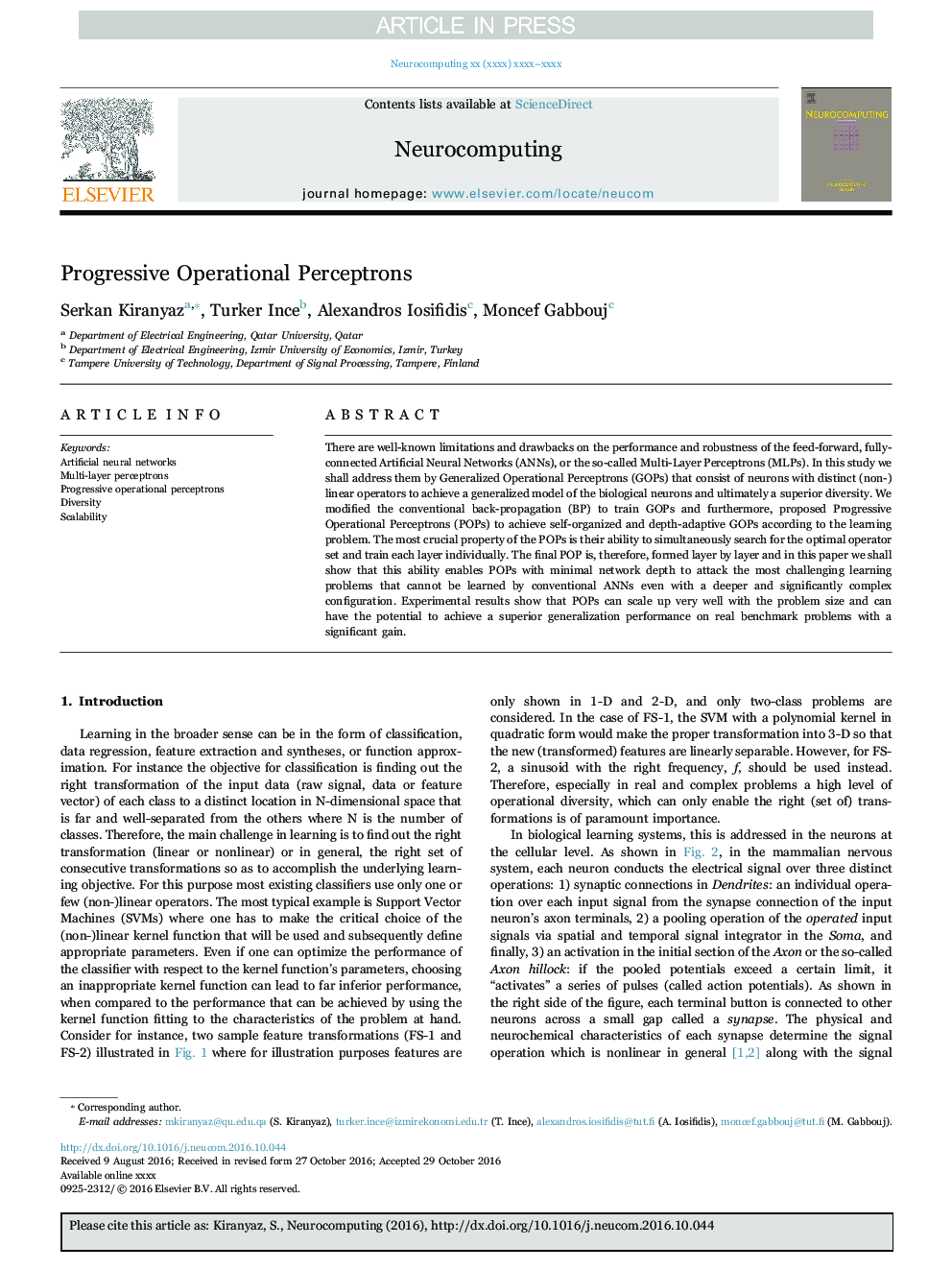| Article ID | Journal | Published Year | Pages | File Type |
|---|---|---|---|---|
| 4948048 | Neurocomputing | 2017 | 13 Pages |
Abstract
There are well-known limitations and drawbacks on the performance and robustness of the feed-forward, fully-connected Artificial Neural Networks (ANNs), or the so-called Multi-Layer Perceptrons (MLPs). In this study we shall address them by Generalized Operational Perceptrons (GOPs) that consist of neurons with distinct (non-)linear operators to achieve a generalized model of the biological neurons and ultimately a superior diversity. We modified the conventional back-propagation (BP) to train GOPs and furthermore, proposed Progressive Operational Perceptrons (POPs) to achieve self-organized and depth-adaptive GOPs according to the learning problem. The most crucial property of the POPs is their ability to simultaneously search for the optimal operator set and train each layer individually. The final POP is, therefore, formed layer by layer and in this paper we shall show that this ability enables POPs with minimal network depth to attack the most challenging learning problems that cannot be learned by conventional ANNs even with a deeper and significantly complex configuration. Experimental results show that POPs can scale up very well with the problem size and can have the potential to achieve a superior generalization performance on real benchmark problems with a significant gain.
Related Topics
Physical Sciences and Engineering
Computer Science
Artificial Intelligence
Authors
Serkan Kiranyaz, Turker Ince, Alexandros Iosifidis, Moncef Gabbouj,
